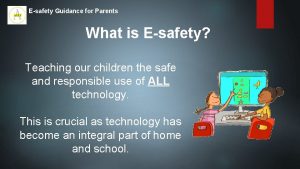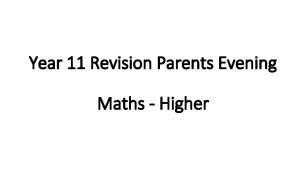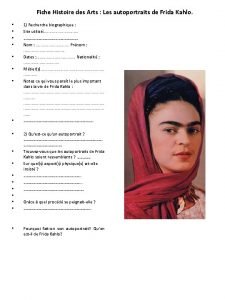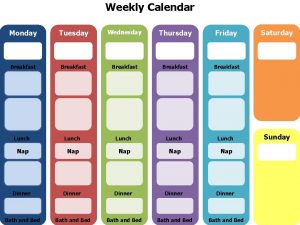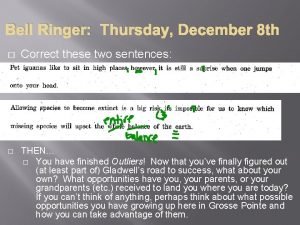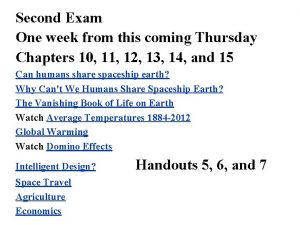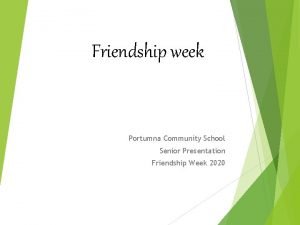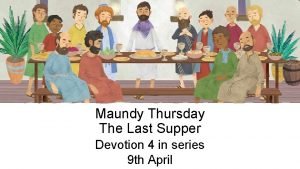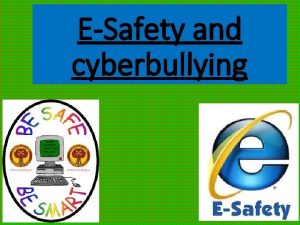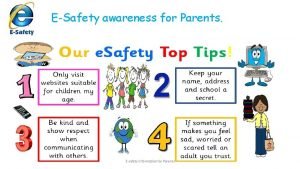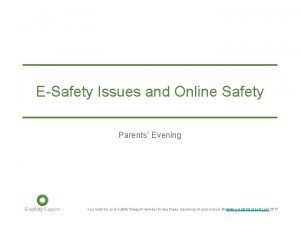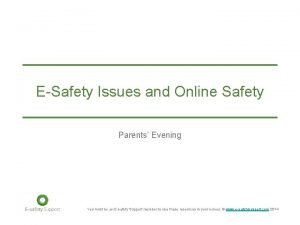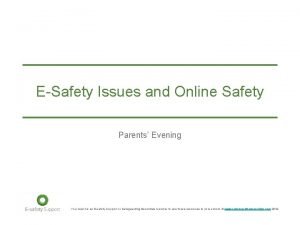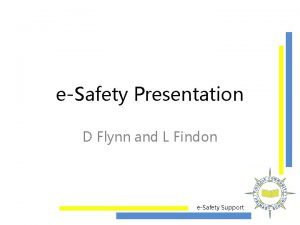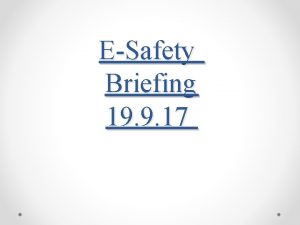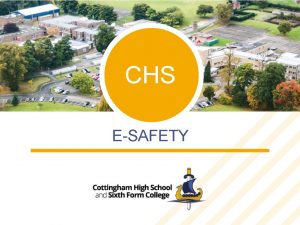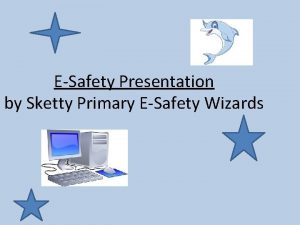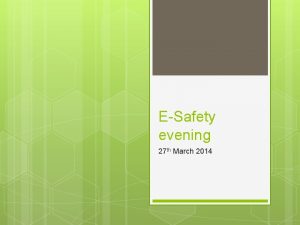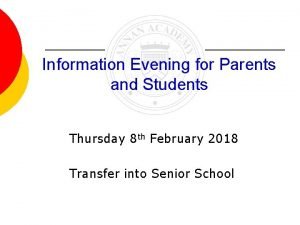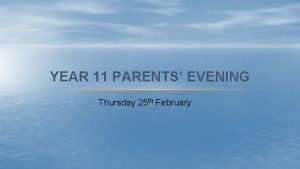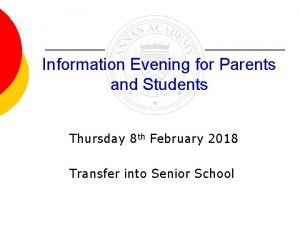ESafety Parents Evening THURSDAY 3 R D MAY

















- Slides: 17

E-Safety Parents’ Evening THURSDAY 3 R D MAY 2018

E-Safety Parents’ Evening • What do children do online? • What are the risks? • E-safety at the Deanery • PCSO Florence – children’s workshop, real life examples etc. • Findings of the Children’s Commissioner report into social media use among 8 -12 year olds. • What can parents do at home? • Questions

What do children do online? 8 -11 year olds spend 11. 1 hours a week online. 12 -15 year olds spend 18. 9 hours a week online.

What do Deanery children do online? • Children are most likely to use tablets to access the internet, but many have their own phones and laptops.

What do Deanery children do online? • Upwards of 42% of children have games consoles (75% in Y 6) • Many children play multiplayer games online which can involve messaging others or speaking over headsets.

What do Deanery children do online? • Between 53% - 70% of children keep devices with them at night. • Many children said that they use these to go online after they’ve been asked to go to bed. (Messaging friends, playing games – most watching You. Tube videos)

Risk and harm • Children will take risks, so there is a need to find a balance between this behaviour and keeping them safe online. • Risk taking is part of child development and connected to our desire to learn and succeed. • As children take risks, they are inevitably exposed to more harm. • Risk taking needs to be viewed in the context of each individual child and their levels of maturity, development and resilience. • The presence of risk does not always mean there will be harm.

What are the risks? – The 3 Cs

What are the risks? • Accessing online pornography (accidentally or out of curiosity) • Accessing violent content (You. Tube videos, games, etc) • Accessing biased or extreme opinion websites (encouraging eating disorders, self-harm and suicide) • Radicalisation and extremism • Sexting/Sharing inappropriate content • Sexual abuse (contact/non-contact) • Online bullying (known or anonymous)

E-Safety at Deanery • Content is filtered through our BGf. L system. • Inappropriate words as text or images are flagged up to SLT. • Reporting system for inappropriate content. • Embedded throughout the curriculum. • Internet Safer Day every February. • Visits from outside providers (b. Cyberwise and the police) • New e-safety units being written for Y 1 -Y 6

Police E-Safety Workshops • June 27 th, 28 th and 29 th • Y 1 -Y 6 • Delivered by PCSO Florence from the Change Team. • PCSO Florence has been delivering school inputs for over 12 yrs covering: Stranger Danger, Antisocial Behaviour, Child Exploitation and Online Protection, Knife Crime and Road Safety.

report – Social media use among 8 -12 year olds Looked at the impact of social media on the wellbeing of 8 -12 year olds. Findings: • As children get older they use social media multiple times a day and for some it dominates their day. • They enjoy keeping in touch, sharing media and supporting each other. • ‘Sharenting’ • Children more likely to see mean comments from others. • Keeping up with others – likes, friends, snapstreaks… • Children torn between staying authentic but also wanting to fit in – wanting to look cool and post pictures that people will like. • Following celebrities – unattainable lifestyle comparisons. • Are children resilient enough to withstand this? Mental health and wellbeing.

What can parents do? • Understand why children go online and how they use apps and websites. • Keep up to date with services children are using – family discussions/useful links. • Manage risks by setting restrictions – consoles, apps, google safe search, You. Tube, (useful links) • If children have social media accounts, ensure these are set to private. • Set screen time allowances if necessary (Our pact app, moment app) & encourage children to disengage. • Be aware of ‘sharenting’, especially with older children. • Most importantly, talk…

What can parents do? • Encourage children to have ongoing open and honest discussions about the apps, social networks and websites they use. Ice breakers available. • Agree with your children which are ok or not ok for them to use and explain why. • Set boundaries that are agreed by everyone, such as times they are allowed online and what they are allowed to do. Family agreement templates available. • Consider setting rewards if they stick to agreements and allow children more freedom as they mature and develop. • Try not to overreact if children make mistakes online. • Reassure them that they can always talk to you about what they do and see online. • Discuss real life vs social media life. Help children to see the difference and realise that they should try not to make comparisons. • Be flexible - allow children more freedom as they demonstrate their maturity and resilience online.

Resources on our website

Questions?

Thank you • Thank you for joining us. • Please fill out an evaluation form. • If you have any questions or worries, please email school/see me after school.
 Teaching esafety
Teaching esafety Parents evening apostrophe
Parents evening apostrophe Etwall primary school
Etwall primary school Bushey meads parents evening
Bushey meads parents evening Shire oak academy reviews
Shire oak academy reviews Parents parents
Parents parents Frida kahlo histoire des arts
Frida kahlo histoire des arts Frida kahlo mes grands parents mes parents et moi
Frida kahlo mes grands parents mes parents et moi Thursday
Thursday My favourite subject is maths
My favourite subject is maths Monday tuesday wednesday thursday friday calendar
Monday tuesday wednesday thursday friday calendar Thursday 420
Thursday 420 Thursday bell ringer
Thursday bell ringer This coming thursday
This coming thursday Senior g friendship thursday
Senior g friendship thursday 997ni1xcmkw -site:youtube.com
997ni1xcmkw -site:youtube.com Thursday bellringer
Thursday bellringer What is easter about
What is easter about
